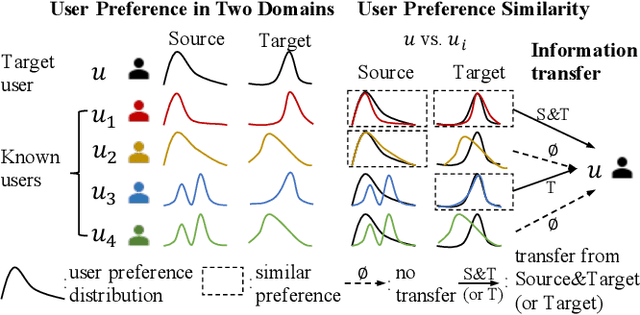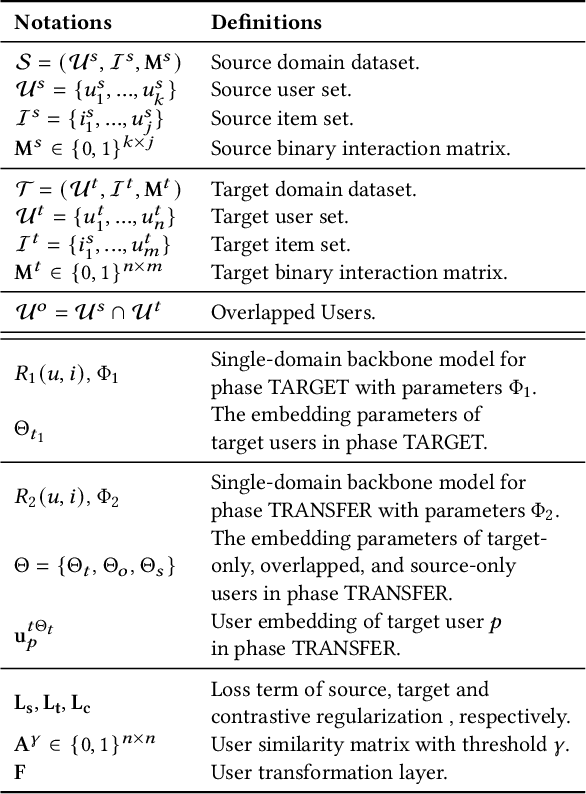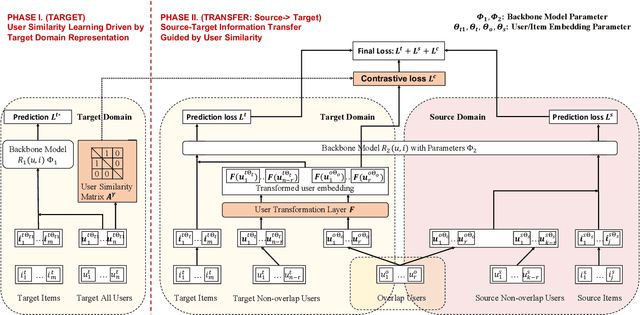Aiming at the Target: Filter Collaborative Information for Cross-Domain Recommendation
Paper and Code
Mar 29, 2024



Cross-domain recommender (CDR) systems aim to enhance the performance of the target domain by utilizing data from other related domains. However, irrelevant information from the source domain may instead degrade target domain performance, which is known as the negative transfer problem. There have been some attempts to address this problem, mostly by designing adaptive representations for overlapped users. Whereas, representation adaptions solely rely on the expressive capacity of the CDR model, lacking explicit constraint to filter the irrelevant source-domain collaborative information for the target domain. In this paper, we propose a novel Collaborative information regularized User Transformation (CUT) framework to tackle the negative transfer problem by directly filtering users' collaborative information. In CUT, user similarity in the target domain is adopted as a constraint for user transformation learning to filter the user collaborative information from the source domain. CUT first learns user similarity relationships from the target domain. Then, source-target information transfer is guided by the user similarity, where we design a user transformation layer to learn target-domain user representations and a contrastive loss to supervise the user collaborative information transferred. The results show significant performance improvement of CUT compared with SOTA single and cross-domain methods. Further analysis of the target-domain results illustrates that CUT can effectively alleviate the negative transfer problem.
 Add to Chrome
Add to Chrome Add to Firefox
Add to Firefox Add to Edge
Add to Edge